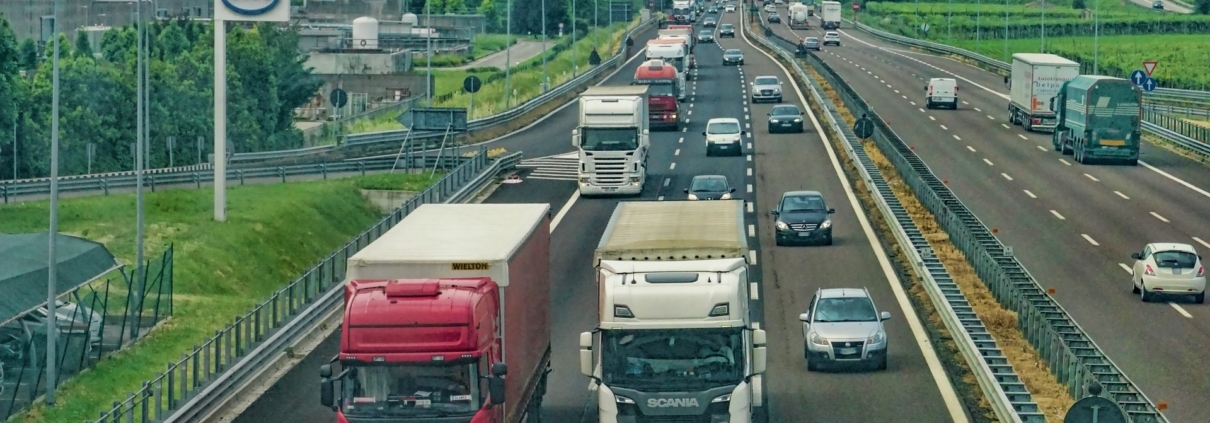The TransiT Hub Podcast – Dr Andreas Elombo, Research Fellow
Next up in our TransiT Hub Podcast ‘Meet the TransiT team’ series, Dr Jamie Blanche speaks to electrical engineer and research fellow Dr Andreas Elombo.
You can listen to Jamie and Andreas’ full discussion on The TransiT Hub Podcast on SoundCloud.

I work within the Edinburgh Business School at Heriot Watt University. I come from the world of electrical engineering, where I must say I’ve had the privilege of starting off my career in the ever-evolving field of renewable energy research from as far back as my undergraduate years, which is over 10 years ago.
My research interests and expertise revolve around the smart grid, which is fundamentally about building an energy system that is adaptable to the changing energy demand and the increasing integration of highly changeable renewable based energy resources, which is essentially distributed across the entire energy system. The idea is really that we create an energy system that is smart enough to reorganise itself, as demand and generation fluctuate so that the voltage and frequency stability of the energy system is maintained.
I’m interested in anything to do with the design and operation of the energy system as we continue to incorporate more solar and wind power as well as energy storage systems. A lot is changing all at once; for example, energy systems are now incorporating heating in the form of heat pumps, transport in the form of electric vehicles, and are also building out electric motorways. This evolving energy system requires a new infrastructure to be built with new operating techniques.
During my doctorate at Oxford, I looked at exactly this challenge of designing and operating a power system with changing demands and generation. There I used a data-driven approach that provided a tool for distribution network operators and planners in gaining insight into the critical operation and design parameters of the power system. As an electrical engineer, it’s an exciting time to be involved in this field and I’m absolutely thrilled to join the TransiT project.
Q2. What is your role as part of the TransiT team?
My role as a research fellow involves conducting an extensive consultation exercise to understand the perspectives of transport industry stakeholders regarding the role of digitisation and federated digital twin architecture in transport decarbonization. I have also provided facilitation and organisation support for our consultation focus groups and workshops held in the autumn.
Q3. What excites you specifically about being involved with the TransiT project?
I have spent all my career working in the energy space and, like other energy engineers, have always been aware of the fact that the energy system will need to undergo an unprecedented transformation to accommodate emerging energy technologies, including a mix of highly changeable demand and generation. The most challenging aspect is that the pace at which this transformation must occur and there needs to be a radical approach to facilitate this change. We know that transport contributes around a third of carbon emissions in the UK so it makes absolute sense to ensure that this sector becomes rapidly decarbonised. What is most exciting about TransiT is that it has the potential to play a transformative role that will catapult us into a net zero future and ensure that we reach these targets as quickly as possible.
Without the accelerated approach that TransiT provides, which is really that federated digital twin approach, it is difficult to see how it’s possible for us to achieve our targets in such a short space of time. The fragmented and siloed approach to decarbonising the transport sector is what’s holding us back from achieving our goals. I’m convinced that TransiT will unlock both the pace and investment required to get us to a future we all aspire to. My interest is to see how the digital twin intervention can help strengthen the link between the energy and transport sectors in real or near-real time. I believe this has the power to truly optimise our pathway to net zero.
Q4. What are the potential benefits of digital twins for transport decarbonisation?
That’s a good question. So, without pretending to be an expert in digital twins, one of the greatest benefits I see in creating digital twins for transport decarbonisation is the provision of a platform that helps us visualise the whole transport system across all modes and see real-time interactions and interdependencies of different transport technologies alongside the energy infrastructure. We can access data on carbon accounting from EV charging stations and electric motorways and measure the progress we’re making to reduce carbon emissions. This integrated platform will also enable us to study future scenarios, right here and now. This integrated cross sector interconnected system of systems will not only enable us to optimise the decarbonisation of the transport system, but will also help eliminate a considerable amount of uncertainty regarding what the future might look like. So with this we are likely to see accelerated development of future proof technologies, underpinned by de risked investments in critical infrastructure and net zero fuel technologies to transform the transport sector.
Q5. Why is the TransiT project significant?
Well, it’s significant in many ways. Decarbonisation, whether it involves replacing the fossil-based electricity generation with green power sources or electrifying heating and transportation, it is a race against time given the current rate of carbon budget depletion. Time we cannot afford to lose by making expensive mistakes and taking 5-10 years to build real-world demonstrators and test facilities to evaluate the best low carbon transport technologies.
The concept of a federated digital twin for transport decarbonisation will help us that we optimise the decarbonisation journey and conserve the limited carbon budget available to us. TransiT provides a kind of time machine that not only allows us to glimpse into the future but also enables us to virtually alter certain parameters in that future and optimise the path to net zero. We must begin engineering a decarbonised transport system in the present as effectively as we can and digital technology is the way to do that.



